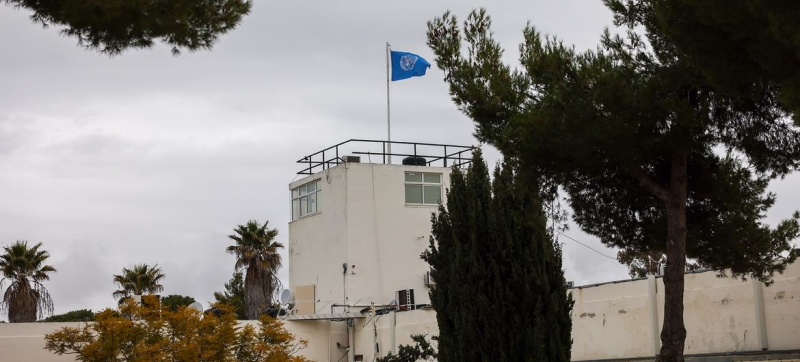
UN Headquarters in East Jerusalem. UNRWA: “For the people of Gaza, our aid is a matter of life and death” Humanitarian aid
The United Nations Relief and Works Agency for Palestinians (UNRWA) continues its activities in Gaza and the West Bank, including East Jerusalem. This was stated by a representative of UNRWA, noting that for the people of Gaza, it is a matter of life and death. Let us recall that the day before, the Israeli parliament’s ban on the agency’s activities came into force.
An estimated 462,000 people have fled from southern Gaza to northern Gaza since the Salah ad-Din and al-Rashid roads opened on Monday. The UN and its humanitarian partners are assisting people along these routes, providing them with water, high-energy biscuits and medical care as needed.
In the northern areas of the enclave, according to UNRWA staff, Gazans are clearing rubble and building temporary shelters. They are in dire need of support and assistance during this difficult period.
Disruptions to UNRWA services would have “catastrophic consequences for the lives and future of Palestine refugees,” insists Juliette Touma, director of communications for the UN Relief and Works Agency for Palestine Refugees in the Near East. She recalled that the Agency has been providing assistance to Palestinians in the areas of health and education for decades.
Last October, Israel’s parliament, the Knesset, passed two laws aimed at curbing UNRWA’s activities. This came after Israel accused the agency’s staff of involvement in attacks by Hamas and other Palestinian groups on Israel. Following an internal UN investigation, nine UNRWA staff members were fired.
Under the Knesset ban, UNRWA was ordered to vacate all premises in occupied East Jerusalem and cease operations there by January 30. “Our teams continue to help people despite the fact that many of our staff have suffered in Gaza themselves, many have been forced to flee their homes,” Tuma said. “They continue to work, and we, as UNRWA, are determined to remain on the ground and deliver supplies in the occupied Palestinian territory. This includes the Gaza Strip, this includes the occupied West Bank, including East Jerusalem.”
She noted that no official communication had been received from the Israeli authorities on how the Knesset ban would be implemented throughout the Occupied Palestinian Territory.
“In the absence of any durable solution, the Palestinian refugees will continue to depend on UNRWA support for basic services, including health and education; and in Gaza, in light of the massive destruction caused by the war, survival is a question for many,” Tuma said.
She noted that UNRWA health centres continued to receive patients in East Jerusalem in the West Bank on Thursday, while schools were waiting to resume work on Sunday after a planned break.
“Our teams… will continue to help with children’s education. Some 50,000 boys and girls across the West Bank, including East Jerusalem, attend UNRWA schools,” Tuma said.
Increasing aid
Meanwhile, the UN continues to deliver humanitarian aid to Gaza. The World Food Programme (WFP) has announced plans to set up more distribution points in the north of the enclave, where all of its bakeries are now operational again.
WFP, together with UNRWA, has resumed distributing food parcels, reaching 350,000 people since the ceasefire came into effect on 19 January.
Some 20,000 hot meals are also being distributed daily in Beit Lahia, in the far north, said Antoine Renard, WFP country director in Palestine, stressing the need to allow non-food items into the war-torn enclave.
Emergency medical care
A World Health Organization (WHO) spokesman said only 18 of Gaza’s 36 hospitals, a third – 57 of 142 – primary health care centres and 11 field hospitals were partially functioning.
“The ceasefire is good news for scaling up aid,” said Rick Peeperkorn, WHO representative in the OPT. “As we know, the influx of refugees in the north has increased health needs. 450,000 people have crossed the border into northern Gaza, and there are only 10 partially functioning hospitals in Gaza City and one minimally functioning hospital in northern Gaza.”
Amid reports that 2,500 children at risk of imminent death in Gaza require immediate medical evacuation, Pieperkorn said that between 12,000 and 14,000 people need specialized care outside the enclave.
“We have asked and continue to ask… first of all, to be able to send people to the West Bank and East Jerusalem. East Jerusalem hospitals and West Bank hospitals are ready to receive patients from Gaza and Palestinians who are in critical condition,” he said.
